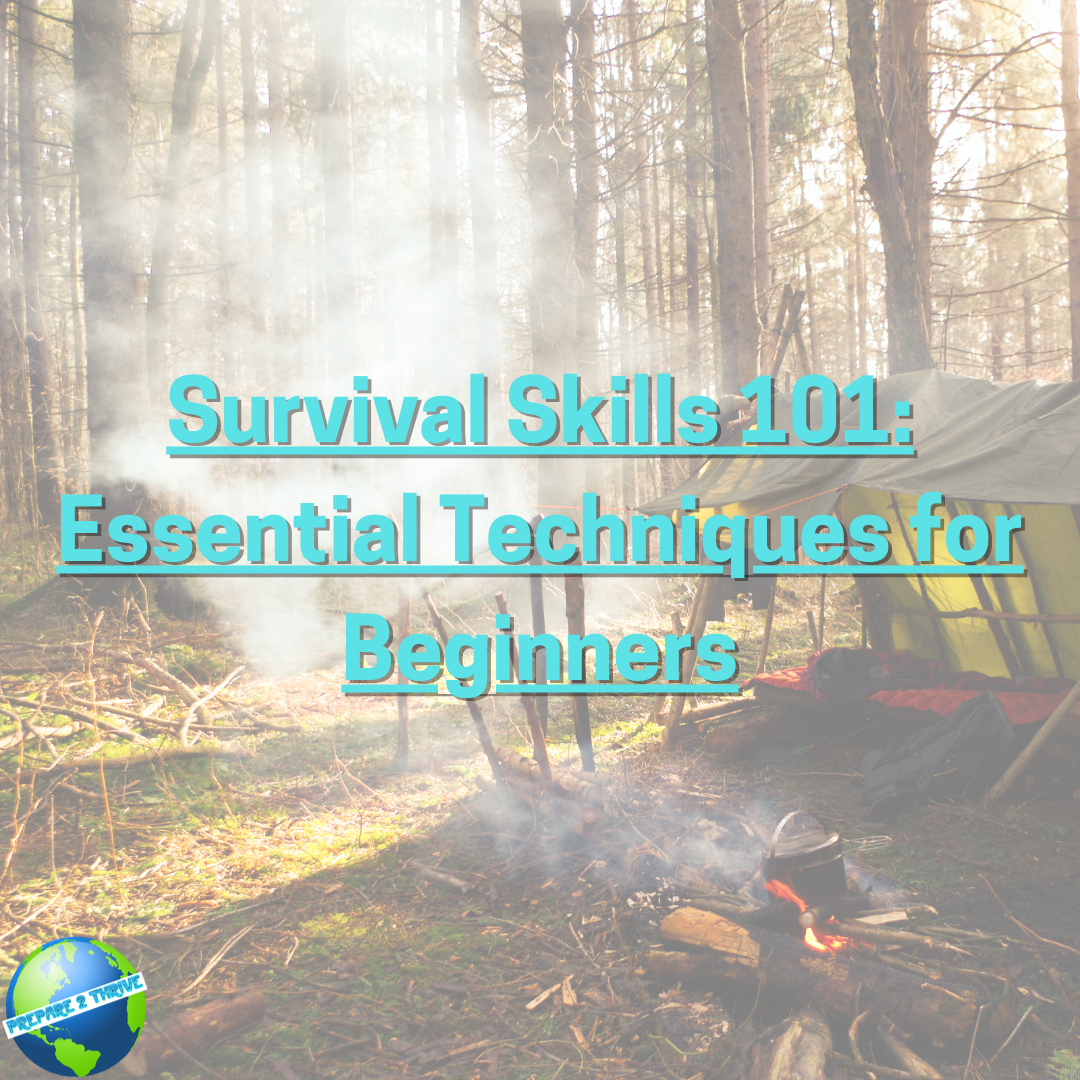In a world filled with uncertainties, having basic survival skills is crucial for everyone. Whether you find yourself in a natural disaster, lost in the wilderness, or facing a societal collapse, knowing how to survive in challenging situations can mean the difference between life and death. In this article, we will explore some essential survival skills that beginners can learn and practice to increase their chances of survival when faced with unexpected circumstances.
1. Shelter Building
One of the first priorities in a survival situation is shelter. Understanding how to create a shelter using natural materials can provide protection from the elements and help maintain body temperature. Learn to identify suitable locations and utilize available resources such as branches, leaves, and debris to construct a sturdy and insulated shelter.
2. Fire Starting
Fire is not only crucial for warmth but also for cooking food, purifying water, and signaling for help. Acquire the skills to start a fire using various methods like friction-based techniques, such as the bow drill or hand drill, as well as modern tools like lighters and fire starters. Practice gathering tinder, kindling, and fuel to ensure a sustainable fire.
3. Water Sourcing and Purification
Access to clean drinking water is vital for survival. Learn how to locate water sources such as rivers, lakes, or even dew on plants. It is crucial to purify water before consumption to avoid waterborne illnesses. Familiarize yourself with purification methods like boiling, using water filters, or chemical treatments like iodine tablets.
4. Navigation and Orienteering
Knowing how to navigate without relying solely on GPS is essential in survival situations. Learn how to use a compass, read maps, and identify natural landmarks to find your way. Additionally, understanding celestial navigation using the sun, moon, and stars can help determine directions even without traditional tools.
5. Basic First Aid
Having basic first aid knowledge can save lives in emergency situations. Learn how to perform CPR, dress wounds, and treat common injuries like sprains or fractures. Build a first aid kit with essential supplies, including bandages, antiseptics, and pain relievers, and understand how to use them effectively.
6. Food Foraging and Trapping
When resources are scarce, knowing how to find food in the wild becomes crucial. Educate yourself on edible plants, mushrooms, and berries in your area. Learn to identify and set up simple traps for small game. However, always prioritize safety and proper identification to avoid ingesting poisonous plants or causing harm to protected wildlife.
7. Knot Tying
Having knowledge of basic knots is invaluable in a survival scenario. Practice tying essential knots like the bowline, square knot, and clove hitch. These knots can be used for shelter construction, securing gear, creating makeshift tools, and various other purposes.
8. Self-Defense and Personal Safety
In some survival situations, encountering dangerous animals or hostile individuals may be a reality. Learning self-defense techniques, such as basic martial arts moves or using improvised weapons, can help protect yourself and increase your chances of survival. Additionally, developing situational awareness and knowing how to assess and mitigate risks is crucial for personal safety.
9. Mental Preparedness and Resilience
Survival skills go beyond physical techniques. Cultivating a strong mindset and emotional resilience is essential in challenging situations. Learn stress management techniques, practice positive self-talk, and develop problem-solving skills. Building mental preparedness will help you stay calm, focused, and adaptable in the face of adversity.
10. Basic Communication and Signaling
Being able to communicate and signal for help can greatly increase your chances of rescue. Learn basic signaling techniques such as using a whistle, mirror, or smoke signals. Additionally, familiarize yourself with emergency communication devices like handheld radios or emergency beacons.
Conclusion
Survival skills are not reserved for extreme scenarios but can be valuable in everyday life. By acquiring and practicing these essential techniques, beginners can increase their chances of survival in unexpected situations. Remember, knowledge and preparation are key. Regular practice, staying informed, and continuously expanding your skill set will help you develop the confidence and competence needed to face any survival challenge that comes your way. Stay safe, be prepared, and never stop learning.
Hashtags: #SurvivalSkills #EssentialTechniques #BeginnersGuide #EmergencyPreparedness #SurvivalTips
